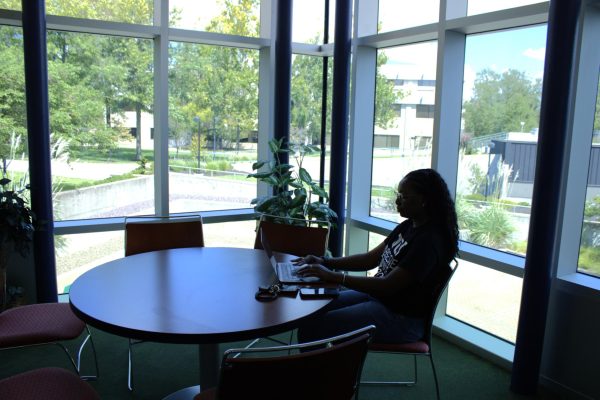‘The first step to unity’
As I sat in the breezeway between UC East and West I watched hundreds of people pass by over a period of two hours. These people, although mostly white and presumably Christian, did include handfuls of diverse individuals.
Around me sat people from other campus organizations at their decorated tables promoting Greek life, charities, and other groups. Each table attracted its fair share of people – except mine.
I sat at a tie-dye cloth covered table with an assortment of candy for the USI Spiritual Diversity Project. Our goal that day was to pass out fliers and candy, interact with students, and take pictures of students holding up signs describing what spirituality was.
A total of seven students stopped at my table. Seven.
This is not for lack of offering, because our candy was better than anyone else’s. Nor was it for lack of trying, because I smiled more in those two hours than I had in the past week.
No one wanted to stop at the USI Spiritual Diversity Project table because a majority of USI’s population seems to be entirely uninterested in diversity.
Being a white, middle-class Christian has that affect on people. When you’re the majority, why would you care about anyone but the people who fit into your identity categories?
This is problem doesn’t just affect USI’s campus; it affects people all across America. If a person does not feel the oppression of being the “other,” then they have no desire to stand up for inclusivity – they’re already included.
However, this is not the case for many people. People of different ethnicities, socioeconomic statuses, and religions are often left out from a myriad of things including advertising and media.
More importantly, people of diverse backgrounds are left out of the minds of the “majority.”
I, myself, am guilty of this from time to time.
We forget to check our privileges and don’t see the struggles going on around us. But just because certain struggles don’t directly affect a person, it does not mean that they are not obligated to stand for what is just.
Remember to consider other perspectives than your own. Remember that people have had very different experiences than you have and respect those experiences.










